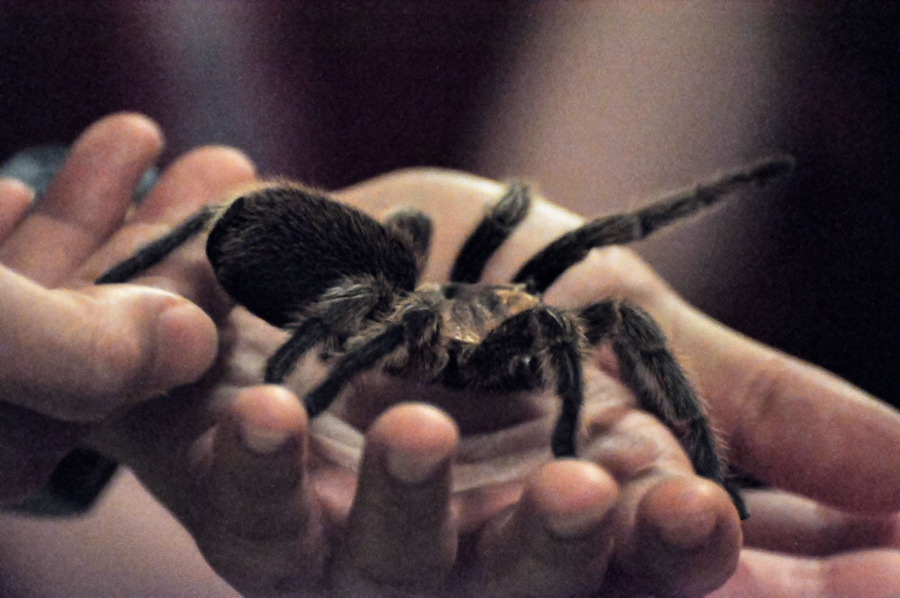Multi-legged creatures become movie stars
An attendee handles a tarantula at the Insect Fear Film Festival on Saturday.
Mar 5, 2023
Last updated on March 7, 2023 at 04:20 p.m.
Zipping from one hand to the other, six legs less than an inch long poke at the skin. As the cockroach explores, the movement continues.
The 40th annual Insect Fear Film Festival happened on Saturday at Foellinger Auditorium. The festival hosted an insect-themed art competition, petting zoo and movies.
May Berenbaum, head of the Department of Entomology at the University, organized the event since she began it 40 years ago.
For the previous two years, Berenbaum said the festival had to move online because of COVID-19.
Get The Daily Illini in your inbox!
“This is our first return to the classic festival format,” Berenbaum said. “Amazingly, there’s still an audience out there.”
Berenbaum said she created the event to reduce people’s fear around insects.
Earth’s ecosystem depends on insects, Berenbaum said. However, their numbers are currently declining.
“Patterns of population change are all, across the board, plunging downward,” Berenbaum said. “They call it an insect apocalypse.”
Public-funded research depends on people’s donations, Berenbaum said. The better educated the public, the better entomological research will be.
Sreelakshmi Suresh, a graduate student studying entomology, handled hissing cockroaches at the event and encouraged people to hold them.
“(They) may initially be afraid of insects, or unsure, but they come and see other people holding the roaches or the tarantulas,” Suresh said. “It teaches them that these things are not scary.”
Public funding tends to go to prettier animals, Suresh said. In the insect world, that attention goes to butterflies.
“They’re pretty, they’re shiny, they fly around and they don’t seem scary,” Suresh said. “But things that maybe crawl on the ground or have a bunch of legs, people are not that excited about.”
With less insects, Suresh said mammal and native plant populations will decline.
“A lot of them are just shoved under the rug … just because our native bees aren’t as cool or praying mantises aren’t really cute and cuddly,” Suresh said. “They really are vital to our ecosystem, to our world.”






